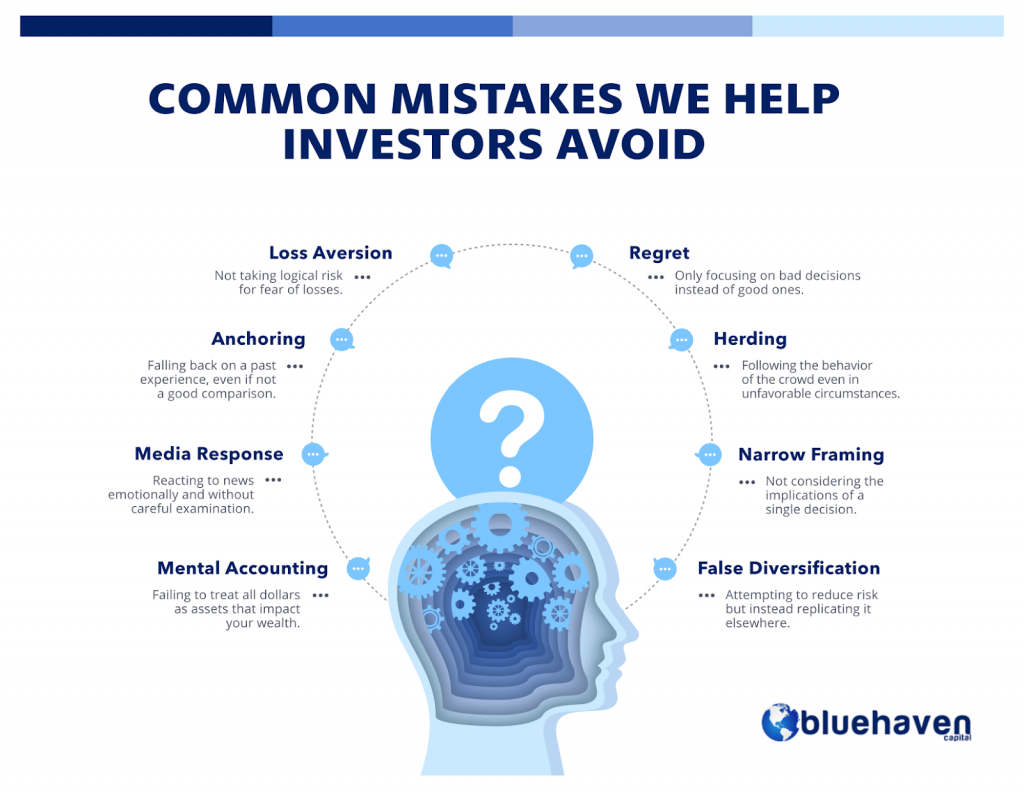An investment can result in huge rewards, but it also carries a high level of risk. A thriving investor must make smart judgments, but even a seasoned investor can make missteps. In the long run, you may even develop better investing practices if you comprehend the consequences of investment mistakes. Let’s see the most typical ones below.
Not having a diversified portfolio
Investors often make the mistake of over-concentrating investments in a single stock or sector. This investing strategy exposes investors to potentially more significant losses if the specific asset class dives into value. The best way for investors to reduce their risk and increase their potential for return is to diversify their investments across various asset classes, such as stocks, bonds, real estate, commodities, and cash equivalents. Investing in multiple asset classes helps spread out risk. It provides more opportunities for reward since different sectors may behave differently during different economic environments.
Chasing returns
Making investment mistakes is common, especially when chasing returns without proper research. Investing in high-performing assets requires thoroughly understanding them to avoid disappointment and losses. Taking the time to research any potential investments is essential for long-term success. It’s important to remember that past performance doesn’t always predict future results. Just because an asset has performed well doesn’t guarantee it will continue to do so in the future. Knowing this is critical when considering which investments you want to make, as relying too heavily on past performance can be a costly mistake.

Credit: bluehavencapital.com
Not having a clear investment plan
Investing can be a tricky business. Without a well-defined investment plan, it’s easy to make impulsive decisions that deviate from your strategy and leave you with less-than-desirable results. A clear plan for investing can help you avoid costly mistakes and put your money to work for you in the most effective way possible. An investment plan helps keep investors organized, focused, and disciplined—all traits necessary for successful investing. When formulating a plan, it’s important to consider critical factors like goals, risk tolerance, and time horizon while also considering current market conditions and economic data. With these elements considered, investors will have the information they need to choose investments that align with their needs. Additionally, having a clear plan allows investors to track their progress more efficiently so they know when adjustments may be necessary along the way.
Emotional investing
The stock market can be a tempting place, with the potential for quick returns and high profits. But it can also be a dangerous playground if investors make decisions based on fear or greed rather than sound financial principles. Impulsive investments often lead to poor returns and costly mistakes that could have been avoided if investors had stayed disciplined and stuck to their investment plan. Investors may get caught up in market hype or make investment choices based on their emotions. This is known as emotional investing when people let their fear or greed drive their decisions instead of the available facts and data. Emotional investing almost always leads to poor outcomes due to inadequate research, unrealistic expectations, or an irrational belief that luck will play a significant role in profits.
Not considering inflation
Not considering inflation can be one of the most costly mistakes when it comes to investing. Inflation causes prices to rise over time, eroding the purchasing power of your investment returns. When you do not consider inflation, your investments may seem more valuable than they are. Investors should consider inflation when deciding on their investments and making financial plans. For example, suppose an investor is planning for retirement and expecting a return from their investments in the future but does not consider inflation. In that case, their returns may be much lower than anticipated due to the price rise over time. Overlooking this crucial factor can have serious long-term consequences for investors who depend on these returns for retirement income or other expenses.
To sum up
Investing can be a great way to grow your money, but it isn’t without risks. Learning about investors’ common mistakes can help you avoid them and get better returns. It’s important for everyone, regardless of experience level, to understand these mistakes to minimize the chances of making them. Making investment errors can have serious financial consequences and lead to losses that could have been avoided. Many people don’t realize how easy it is to make costly mistakes when investing. Common slip-ups include failing to diversify investments across asset classes, neglecting research before investing, and overtrading due to emotional influences such as fear or greed. Understanding the potential pitfalls associated with investing can help ensure informed decisions are made and provide more security when it comes to long-term wealth-building strategies.




